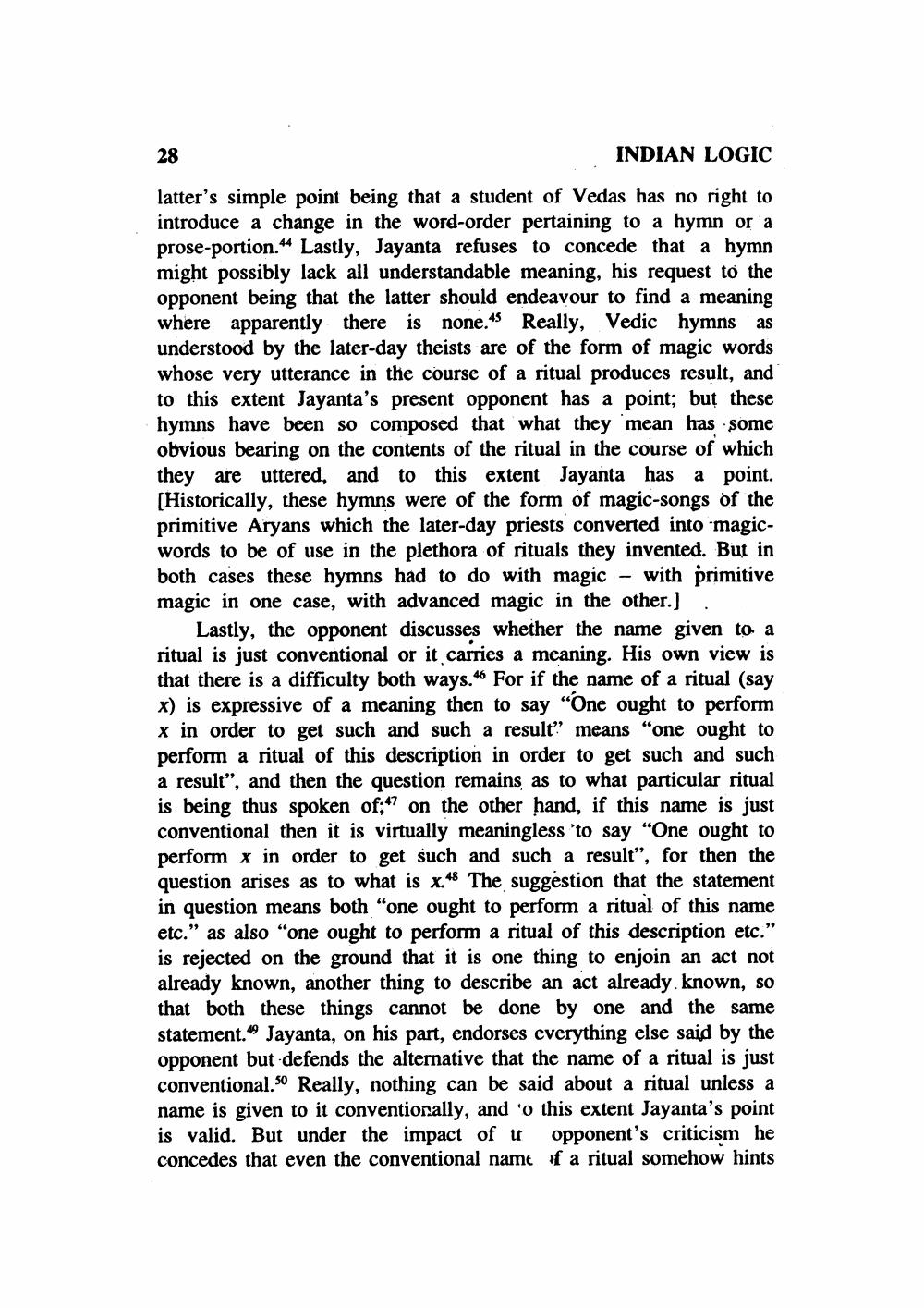________________
28
INDIAN LOGIC latter's simple point being that a student of Vedas has no right to introduce a change in the word-order pertaining to a hymn or a prose-portion.44 Lastly, Jayanta refuses to concede that a hymn might possibly lack all understandable meaning, his request to the opponent being that the latter should endeavour to find a meaning where apparently there is none.4S Really, Vedic hymns as understood by the later-day theists are of the form of magic words whose very utterance in the course of a ritual produces result, and to this extent Jayanta's present opponent has a point; but these hymns have been so composed that what they mean has some obvious bearing on the contents of the ritual in the course of which they are uttered, and to this extent Jayanta has a point. [Historically, these hymns were of the form of magic-songs of the primitive Aryans which the later-day priests converted into magicwords to be of use in the plethora of rituals they invented. But in both cases these hymns had to do with magic - with primitive magic in one case, with advanced magic in the other.).
Lastly, the opponent discusses whether the name given to a ritual is just conventional or it carries a meaning. His own view is that there is a difficulty both ways. For if the name of a ritual (say x) is expressive of a meaning then to say "One ought to perform x in order to get such and such a result” means “one ought to perform a ritual of this description in order to get such and such a result", and then the question remains as to what particular ritual is being thus spoken of;47 on the other hand, if this name is just conventional then it is virtually meaningless 'to say "One ought to perform x in order to get such and such a result”, for then the question arises as to what is x." The suggestion that the statement in question means both “one ought to perform a ritual of this name etc." as also "one ought to perform a ritual of this description etc." is rejected on the ground that it is one thing to enjoin an act not already known, another thing to describe an act already known, so that both these things cannot be done by one and the same statement." Jayanta, on his part, endorses everything else said by the opponent but defends the alternative that the name of a ritual is just conventional.50 Really, nothing can be said about a ritual unless a name is given to it conventionally, and to this extent Jayanta's point is valid. But under the impact of u opponent's criticism he concedes that even the conventional name if a ritual somehow hints




